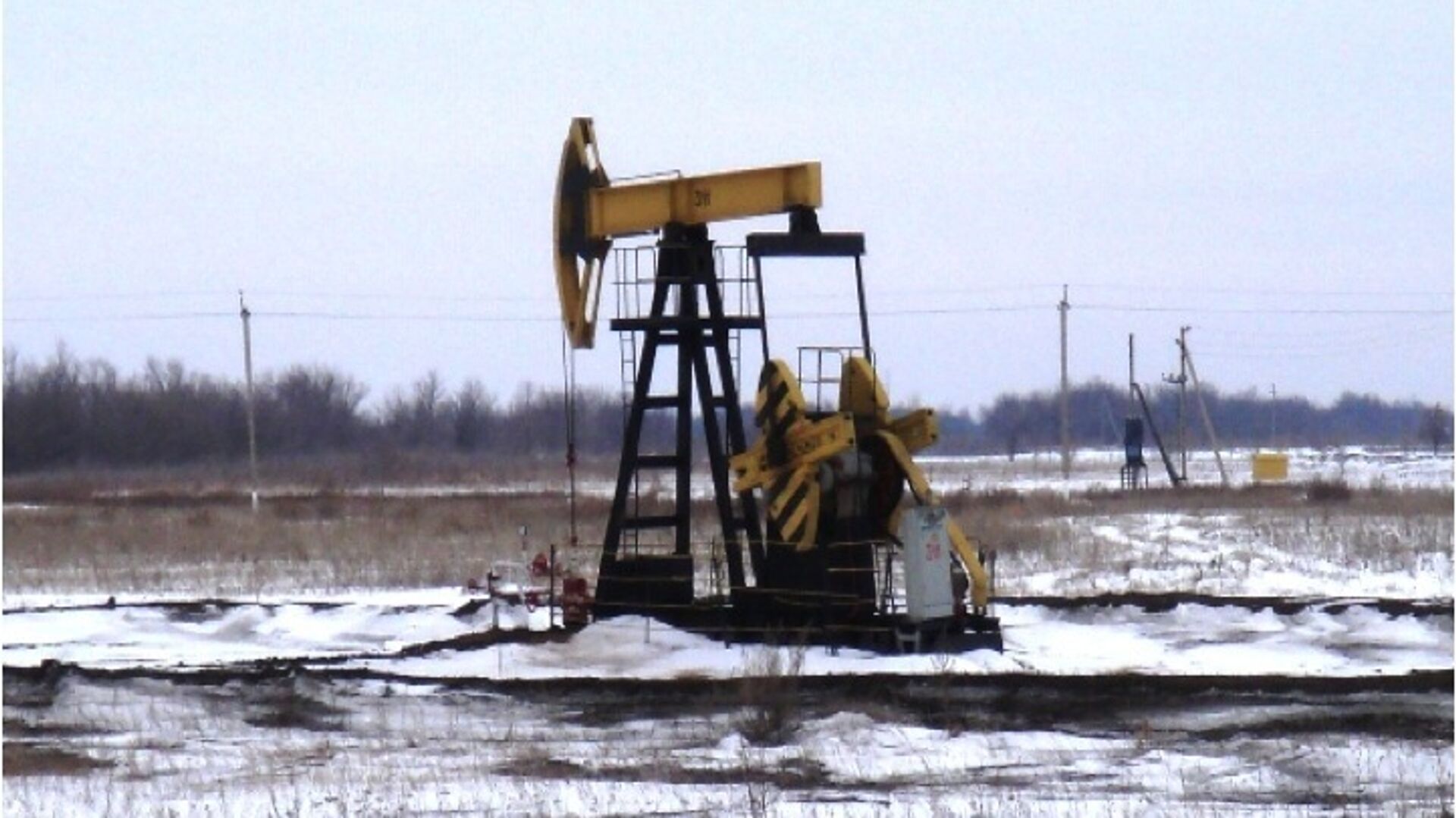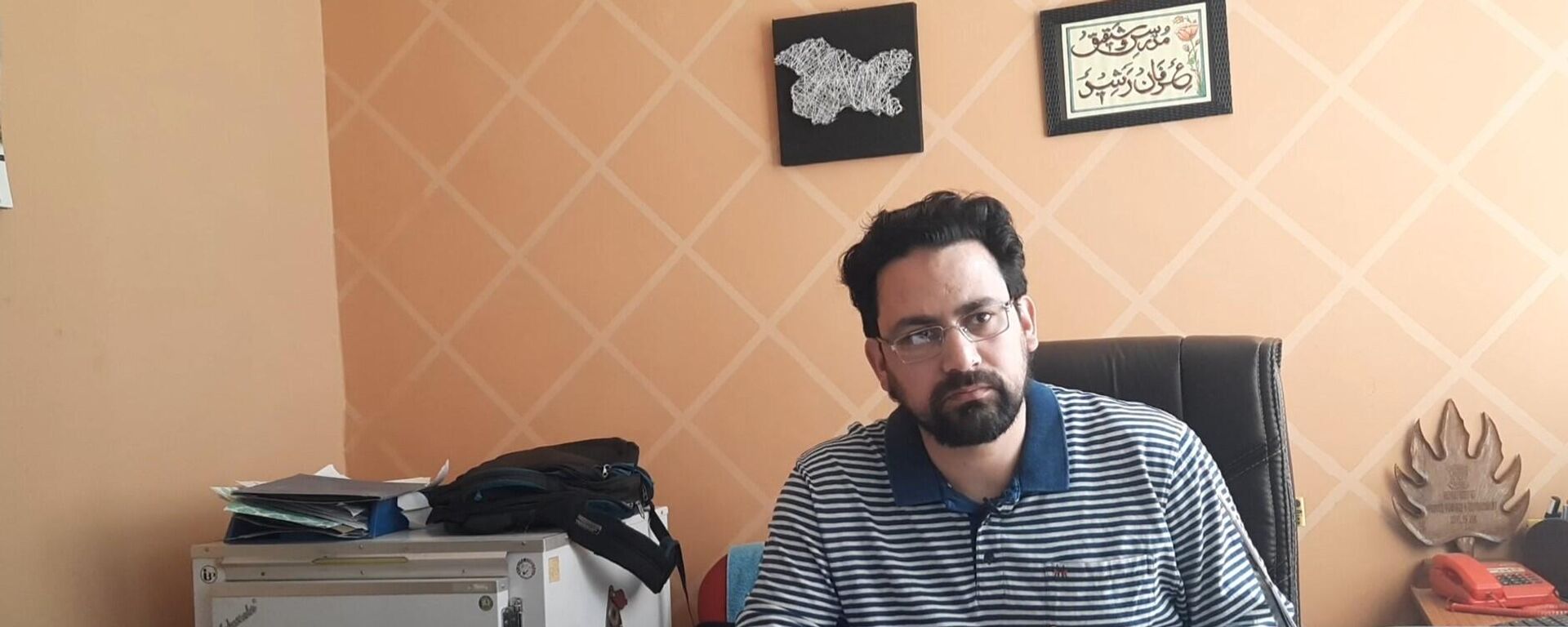https://sputnikglobe.com/20220408/how-can-india-maximise-potential-to-compete-with-china-in-sourcing-energy-rare-metals-from-arctic-1094587841.html
How Can India Maximise Potential to Compete with China in Sourcing Energy, Rare Metals from Arctic?
How Can India Maximise Potential to Compete with China in Sourcing Energy, Rare Metals from Arctic?
Sputnik International
India unveiled its Arctic policy, titled 'India and the Arctic: Building a Partnership for Sustainable Development,' at a time when member countries of the... 08.04.2022, Sputnik International
2022-04-08T14:05+0000
2022-04-08T14:05+0000
2022-11-15T14:20+0000
russia
arctic
us
natural gas
narendra modi
vladimir putin
oil
https://cdn1.img.sputnikglobe.com/img/15955/71/159557146_0:68:723:474_1920x0_80_0_0_e85ee324619284e7cafedd2c1aaec593.jpg
Aiming to optimise the available opportunities in the Arctic region, India has reiterated its ambitions to build polar ice-class research vessels in its recently published Arctic policy document.The vessels will play a crucial role in accessing the Arctic for scientific purposes like meteorology, cryospheric research, and hydrography, which directly affect India's development goals back home. They will also reduce dependency on foreign charter vessels for logistic supplies that would increase the sourcing of oil and gas, as seen in China's case, from this region. China operates two large polar research vessels with ice-breaking capabilities and is constructing a third nuclear-powered ship.Besides gaining experience on climate issues, the Arctic collaboration with partner countries aimed to increase India's involvement in the hydrocarbon sector on the Arctic shelf and Russia's Far East. India's Arctic Policy noted that melting ice opens up new energy exploration, mining, food security, and shipping opportunities.Traffic through the Northern Sea Route is rising exponentially and is projected to grow to 80 million tonnes by 2024.The Arctic has vast deposits of hydrocarbons and minerals such as copper, niobium, platinum-group elements, and rare earth metals lying beneath the ocean floor. Various studies suggest the region possesses around 16 % of the world's untapped oil and 30 percent of the world's undiscovered gas.The Indian government has sought collaboration with Arctic states — Canada, the US, Russia, Denmark, Finland, Iceland, Norway, and Sweden, to explore opportunities for the responsible exploration of natural resources and minerals in the Arctic. It encouraged India's industry to enhance private investment in the Arctic, including public-private partnerships.India has expedited its engagement with Arctic states in recent years. However, it has broader agreements with Russia to "prepare a programme for the development of the Russian Far East and Arctic region for 2020-25".India lacks logistic capabilities, which hinders the fast-paced involvement of Indian firms seeking investment in the region. One expert opined that Russia's expertise in shipbuilding would help India massively. This can be evident because India has been trying to acquire or construct a Polar Research Vessel (PRV) for more than a decade, but it has failed to achieve the goal.ROSATOM and its Northern Sea Route Directorate and ATOMFLOT subsidiary are in charge of Russia's nuclear-powered heavy icebreaker ships, which far outclass anything Finland, the US, Denmark, Norway or China have built, Pareek added.Russia's newly-built "Arktika" Project 22220 icebreaker ships have virtually unlimited range and can help other ships transverse the frozen waters of the Arctic year round.According to Pareek, India may find it useful to contract the services of ATOMFLOT for convoys led by Arktika class icebreakers, clearing the way for other Indian contracted, crewed or owned ships on expedition to the Arctic. "India should also explore the prospects of Russia's unique nuclear-powered cargo ship "Sevmorput" for transporting heavy scientific material and a large number of personnel on these expeditions," he suggested.ROSATOM is also the Russian government's designated functionary responsible for the Northern Sea Route's development, infrastructure, and logistics.The Russian firm is also planning to conduct a hydrographic survey of 45.2 thousand linear kilometres in waters around the Northern Sea Route this year.The Indian Navy's hydrography branch, and the Indian Ministry of Earth Science's National Centre for Polar and Ocean Research(NCPOR) possess considerable hydrography and oceanography capabilities. Thus, making any cooperative survey of the Arctic can be seen as a mutually beneficial scientific and logistical exercise.
https://sputnikglobe.com/20220407/indias-new-arctic-policy-expected-to-increase-understanding-of-glacial-bursts-in-himalayas-expert-1094550478.html
arctic
Sputnik International
feedback@sputniknews.com
+74956456601
MIA „Rossiya Segodnya“
2022
Rishikesh Kumar
https://cdn1.img.sputnikglobe.com/img/07e4/08/04/1080055820_0:0:388:389_100x100_80_0_0_40018ee210946d65d49ffba4f4c008e1.jpg
Rishikesh Kumar
https://cdn1.img.sputnikglobe.com/img/07e4/08/04/1080055820_0:0:388:389_100x100_80_0_0_40018ee210946d65d49ffba4f4c008e1.jpg
News
en_EN
Sputnik International
feedback@sputniknews.com
+74956456601
MIA „Rossiya Segodnya“
Sputnik International
feedback@sputniknews.com
+74956456601
MIA „Rossiya Segodnya“
Rishikesh Kumar
https://cdn1.img.sputnikglobe.com/img/07e4/08/04/1080055820_0:0:388:389_100x100_80_0_0_40018ee210946d65d49ffba4f4c008e1.jpg
arctic, us, natural gas, narendra modi, vladimir putin, oil
arctic, us, natural gas, narendra modi, vladimir putin, oil
How Can India Maximise Potential to Compete with China in Sourcing Energy, Rare Metals from Arctic?
14:05 GMT 08.04.2022 (Updated: 14:20 GMT 15.11.2022) India unveiled its Arctic policy, titled 'India and the Arctic: Building a Partnership for Sustainable Development,' at a time when member countries of the Arctic Council were divided over Russia's special military operation in Ukraine. India holds observer status in the Arctic Council -- an intergovernmental body involving eight Arctic states.
Aiming to optimise the available opportunities in the Arctic region, India has reiterated its ambitions to build polar ice-class research vessels in its recently published Arctic policy document.
The vessels will play a
crucial role in accessing the Arctic for scientific purposes like meteorology, cryospheric research, and hydrography, which directly affect India's development goals back home. They will also reduce dependency on foreign charter vessels for
logistic supplies that would increase the sourcing of oil and gas, as seen in China's case, from this region.
China operates two large polar research vessels with ice-breaking capabilities and is constructing a third nuclear-powered ship.
Besides gaining experience on climate issues, the Arctic collaboration with partner countries aimed to increase India's involvement in the hydrocarbon sector on the Arctic shelf and Russia's Far East.
India's Arctic Policy noted that melting ice opens up new energy exploration, mining, food security, and shipping opportunities.
"The Arctic and Russia's Far East region can offer a strategic alternative to India's energy shipments once the oil and gas fields are developed there. In light of this, India supports Russia's vision of developing the Northern Sea Route for international trade and commerce," Uttam Kumar Sinha, a Research Fellow at the Delhi-based Manohar Parrikar Institute for Defence Studies and Analyses, told Sputnik.
Traffic through the Northern Sea Route is rising exponentially and is projected to grow to 80 million tonnes by 2024.
The Arctic has vast deposits of hydrocarbons and minerals such as copper, niobium, platinum-group elements, and rare earth metals lying beneath the ocean floor.
Various studies suggest the region possesses around 16 % of the world's untapped oil and 30 percent of the world's undiscovered gas.
The Indian government has sought collaboration with Arctic states — Canada, the US, Russia, Denmark, Finland, Iceland, Norway, and Sweden, to explore opportunities for the responsible exploration of natural resources and minerals in the Arctic.
It encouraged India's industry to enhance private investment in the Arctic, including public-private partnerships.
India has expedited its engagement with Arctic states in recent years. However, it has broader agreements with Russia to "prepare a programme for the development of the Russian Far East and Arctic region for 2020-25".
India lacks logistic capabilities, which hinders the fast-paced involvement of Indian firms seeking investment in the region.
One expert opined that Russia's expertise in shipbuilding would help India massively. This can be evident because India has been trying to acquire or construct a Polar Research Vessel (PRV) for more than a decade, but it has failed to achieve the goal.
"India can look to cooperate with Russia's state-owned ROSATOM, for several important logistics of ensuring access to important operational logistics in the Arctic," Aditya Pareek, a research analyst with Bengaluru-based Takshashila Institution, told Sputnik.
ROSATOM and its Northern Sea Route Directorate and ATOMFLOT subsidiary are in charge of Russia's nuclear-powered heavy icebreaker ships, which far outclass anything Finland, the US, Denmark, Norway or China have built, Pareek added.
Russia's newly-built "Arktika" Project 22220 icebreaker ships have virtually unlimited range and can help other ships transverse the frozen waters of the Arctic year round.
According to Pareek, India may find it useful to contract the services of ATOMFLOT for convoys led by Arktika class icebreakers, clearing the way for other Indian contracted, crewed or owned ships on expedition to the Arctic.
"India should also explore the prospects of Russia's unique nuclear-powered cargo ship "Sevmorput" for transporting heavy scientific material and a large number of personnel on these expeditions," he suggested.
ROSATOM is also the Russian government's designated functionary responsible for the Northern Sea Route's development, infrastructure, and logistics.
The Russian firm is also planning to conduct a hydrographic survey of 45.2 thousand linear kilometres in waters around the Northern Sea Route this year.
The Indian Navy's hydrography branch, and the Indian Ministry of Earth Science's National Centre for Polar and Ocean Research(NCPOR) possess considerable hydrography and oceanography capabilities. Thus, making any cooperative survey of the Arctic can be seen as a mutually beneficial scientific and logistical exercise.




